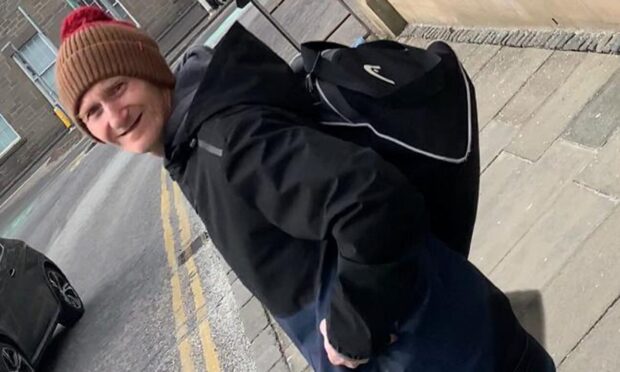A woman who defrauded her partner and built up a £32,000 debt behind his back was only found out after the couple were evicted from their dream home.
Mary McDonald plundered her boyfriend’s bank account while keeping him in the dark about his increasingly dire financial situation.
Neil Reid was unaware he was in debt to a construction firm that worked on his four-bedroom home in the Perthshire countryside.
He did not know they were pursuing court action to have him declared bankrupt.
McDonald lied again and again to creditors and sequestrators as she tried to fend off the inevitable.
She even forged her partner’s signature and faked a letter from a mortgage provider explaining the debts were the result of a computer error.
The 41-year-old, of Bruach Lane, Pitlochry, appeared at Perth Sheriff Court and admitted running a fraudulent scheme between May 2014 and August 2019.
She pled guilty to obtaining unauthorised access to her then-partner’s bank account and making a series of transactions and cash withdrawals for her own benefit.
Country house
The court heard McDonald and Mr Reid were in a relationship for nearly 20 years but separated in 2019.
In 2014, Mr Reid, a builder, bought a plot of land at Stanley and took out a mortgage in his own name to finance a new-build home.
Although he believed he had sufficient funds, the court was told he did not check activity on his account and did not have internet banking.
The couple set up an online account to pay for costs during the housing project.
McDonald was not authorised to access her partner’s personal bank account but he knew she had an email account in his name she used to manage his correspondence.
In May 2014, McDonald set up internet banking for Mr Reid without his knowledge.
Bankruptcy order
Mr Reid was unaware that throughout 2016 and 2017, several loans were taken out in his name.
Over time, substantial debts began to mount and credit cards were maxed out, resulting in payment charges.
Eventually, a building supplies company made an application to declare Mr Reid bankrupt over an outstanding debt.
In September 2017, an order was made to sequestrate his estate.
Mr Reid remained unaware throughout.
In April 2018, sheriff officers attended at the house to serve citation for a court hearing regarding bankruptcy proceedings.
Mr Reid was not home but McDonald accepted the papers.
The following month, officers returned and served an interlocuter – a court order demanding Mr Reid engage with court action against him.
Again, the documents were never passed on to him.
Due to perceived non-compliance, officers returned to the house on August 13 2018 and gained entry.
They changed the locks and left a note, requesting occupants attend at their offices and pick up a new set of keys.
McDonald collected the keys and agreed to act as a point of contact for administrators during an insolvency probe.
She even handed them a letter purportedly signed by her partner, giving her permission to act on his behalf.
When administrators tried to set up a phone interview with Mr Reid, McDonald came up with a variety of excuses for why he was unavailable.
McDonald then tried to persuade officers her partner’s finances were in order and all issues had been resolved.
She handed over a letter on headed note paper, allegedly from the mortgage provider apologising for a computer error.
Shock eviction
In April 2019, an eviction notice was executed on the couples’ home with a demand for all outstanding debts to be repaid within 14 days.
McDonald tried to speak to administrators but was told they would only talk to her partner.
She phoned him at work and explained they had just been evicted.
“He was shocked by this, as he was unaware of any issues with his finances,” the fiscal depute said.
The property was re-possessed and the pair were moved into alternative accommodation.
She told him she had resolved the matter and instructed solicitors.
Deferred sentence
“Mr Reid became suspicious and attended at his bank to check his records,” the prosecutor said.
There, he found out the details of the bankruptcy order made against him.
When he called administrators, they provided him with a list of creditors he owed money to.
Mr Reid then called police.
The court heard that in total, McDonald benefited from £32,662 in unauthorised transactions and withdrawals.
Solicitor David Holmes, defending, urged the court to defer sentence for reports.
“By that time, the remaining sum should be repaid in full,” he said.
Sheriff Alison McKay agreed to defer the case until next month and told McDonald: “With some hesitation, I will continue your bail.”
For more local court content visit our page or join us on Facebook.












